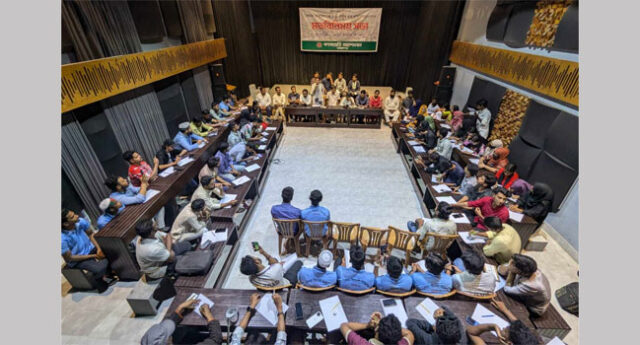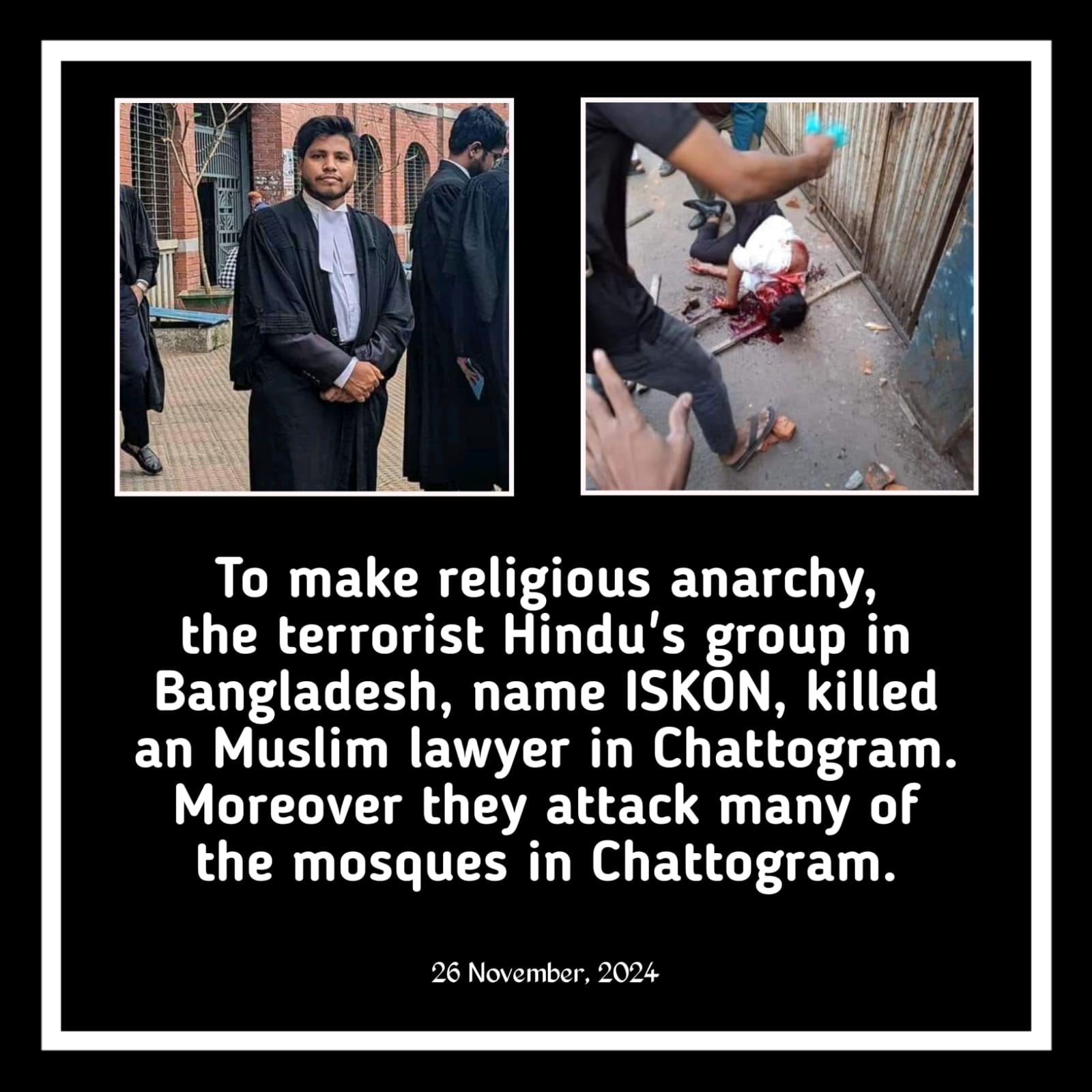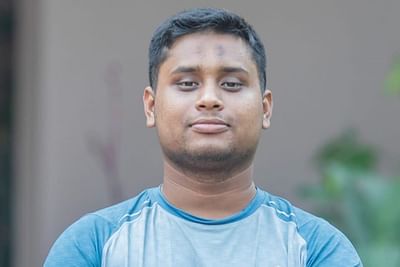A group of over a hundred student leaders from the mass uprising in Narayanganj strongly declared that no new “Sheikh Hasina” should be allowed to rise, and all “dummy versions” of Sheikh Hasina must be uprooted. This sentiment was expressed during a discussion session held on Saturday, September 7, at the Ali Ahmad Chunka Library and City Auditorium.
The students emphasized their vision for a future Narayanganj that would be accountable, free from fear, safe and offer equal opportunities for all citizens. The event, titled What Kind of Narayanganj Do We Want, was organized by the district and metropolitan committees of the Ganosamhati Andolon. Anjan Das, the executive coordinator of the Narayanganj district committee, conducted the session, which was chaired by Toriqul Sujon.
The students discussed several pressing issues affecting the city. They called for an end to the operation of unlicensed and unfit buses to solve the traffic congestion problem in Narayanganj and demanded stricter parking regulations. They also urged local authorities and bus owners to lower bus fares and improve the standard of healthcare services by tackling corruption, bribery, and the powerful syndicates that control the private and public hospital systems. They emphasized reducing private doctors’ fees and warned against the growing commercialization of medical tests, calling for oversight to protect citizens from exploitation.
There was also a demand for regular accountability from the administration. Expressing deep anger, the students criticized how, historically, drugs, violence, land grabbing, and looting had been carried out under political protection, and that these activities continued under new guises. They called for immediate action to end such practices in the city.
Farhana Manik Muna, President of the Bangladesh Student Federation’s Narayanganj chapter, highlighted how Narayanganj had been known as a region of disappearances, murders, and terror for the past 17 years. She noted that the student movement and the general public had ousted the dictatorship at the cost of their lives, ushering in a new era. Muna emphasized that the current priority should be the reconstruction of the state and that the rebuilding of Narayanganj is tied to this broader national effort. She pledged that students would play an active role in this reconstruction process, particularly in ensuring a democratic environment for education. Muna called for the formation of environmental councils in every educational institution to promote democratic values and demanded the implementation of half fares for students on public transportation. She also called for the establishment of a full-fledged university and medical college in Narayanganj.
Abul Hasan Rubel, the executive coordinator of the Ganosamhati Andolon central committee, criticized how students have been used as “guinea pigs” and accused authorities of distorting the nation’s history, erasing significant movements from textbooks, including the liberation struggle and other vital uprisings. He argued that 2024 marks a renewal of 1971, signifying the dawn of a new democratic transformation. Rubel warned against allowing the rise of another authoritarian figure like Sheikh Hasina and emphasized the need to destroy all symbolic and real forms of dictatorship to ensure a democratic future.
Tariqul Sujon, the coordinator of the Ganosamhati Andolon’s Narayanganj district, echoed this call, stating that Narayanganj must become a place of accountability, free from fear, and provide equal opportunities to all citizens. He stressed that if the people want a fear-free Narayanganj, they must also establish a city free from the clutches of criminal gangs and political mafias. He emphasized that no one in Narayanganj should feel like a second-class citizen, and the citizens must reject any future dictatorial governance.
The students further expressed their belief that maintaining unity and solidarity is key to ensuring that both Narayanganj and the broader country become livable, where justice, equality, and democratic values prevail.
Other prominent speakers at the meeting included Niamur Rashid Biplob, the metropolitan committee coordinator, Poppy Rani Sarkar, the executive coordinator, and members of the district committee, such as Alomgir Hossain Alom and Abdul Al Mamun. Additional speakers included Mahmud Koli Harun from the Siddhirganj committee, Ziaur Rahman Joy, Bangladesh Student Federation Vice-President Sayedur Rahman, Sourav Sen, and General Secretary Srijoy Saha. They all reiterated the importance of dismantling the remnants of authoritarianism and building a future rooted in democracy, equality, and accountability for all citizens in Narayanganj.










